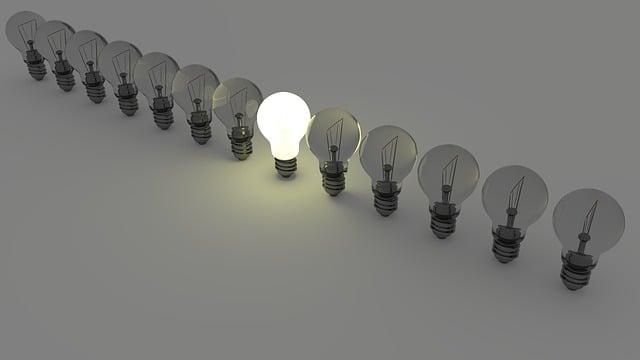Have you ever wondered why a sip of that piping hot coffee or a swig of your energizing soda can sometimes leave you feeling light-headed? It’s a curious sensation that many of us experience, and it often leads to questions such as “Why does caffeine have this effect?” If you’ve been pondering this mystery, fret no more! In this article, we will delve into the fascinating world of caffeine and unravel the reasons behind that slight dizziness that accompanies your beloved caffeine fix. Get ready to gain a deeper understanding of the effect caffeine has on your body, and be prepared for some eye-opening insights that will leave you feeling more informed than ever before. So, grab a cuppa, take a seat, and let’s demystify the light-headedness caused by caffeine together!
1. The Jolt of Energy: Unraveling the Mysteries of Caffeine’s Impact
Caffeine is a powerful stimulant that has a significant impact on our bodies and minds. It’s commonly found in coffee, tea, energy drinks, and even some foods. When consumed, caffeine quickly enters the bloodstream and makes its way to the brain. One of its primary effects is to block adenosine, a neurotransmitter that promotes sleep and relaxation. By doing so, caffeine increases alertness and keeps us awake, providing that much-needed jolt of energy.
Not only does caffeine help us stay awake, but it also has numerous other effects on our body. It stimulates the central nervous system, accelerating the release of dopamine, a neurotransmitter associated with pleasure and motivation. This release contributes to the feelings of increased energy and improved mood that many experience after consuming caffeine. Additionally, caffeine can enhance physical performance by increasing the release of adrenaline and stimulating the breakdown of fat cells, which serve as an energy source for the muscles. However, it’s important to note that too much caffeine can lead to negative side effects, such as restlessness, anxiety, and even insomnia. As with any stimulant, moderation is key.
2. Delving into the Chemistry: How Caffeine Interacts with Your Body
Caffeine is a fascinating substance that affects our bodies in numerous ways. When you consume caffeine, it quickly enters your bloodstream and starts to work its magic. One of its primary actions is blocking adenosine receptors in the brain. Adenosine is a neurotransmitter that promotes relaxation and sleep. By blocking its receptors, caffeine creates the opposite effect, keeping you awake and alert.
Moreover, caffeine stimulates the release of other neurotransmitters such as dopamine, which is associated with pleasure and motivation. This is why caffeine can give you a temporary boost of energy and a feeling of well-being. Additionally, caffeine increases the production of adrenaline, the famous ‘fight-or-flight’ hormone. Adrenaline prepares your body for action, increasing your heart rate and blood flow, sharpening your focus, and giving you that extra burst of energy when you need it.
4. Balancing Act: The Fine Line Between Stimulation and Dizziness
When it comes to finding the right balance between stimulation and avoiding dizziness, it can feel like walking a tightrope. Our body’s senses work together to keep us upright and oriented, but sometimes things can go haywire, leading to that disorienting sensation of dizziness. Let’s dive into the delicate yet fascinating dance between our senses and how they contribute to our overall balance.
One of the key players in maintaining balance is our inner ear, which contains tiny, fluid-filled canals that inform our brain of our head’s position in space. These canals work alongside the otolithic organs, small crystals that detect gravity and linear movement. By detecting the slightest shifts in our head’s position, these intricate mechanisms send signals to the brain, allowing us to maintain our equilibrium. However, when something disrupts this intricate system, such as an inner ear infection or certain medications, it can result in dizziness and a sense of unsteadiness. This is where finding the right balance of stimulation becomes crucial in managing the fine line between remaining upright and feeling dizzy.
8. A Word of Caution: How to Manage Caffeine Intake for a Healthy Balance
When it comes to caffeine intake, it is important to strike a healthy balance. While caffeine can offer a pick-me-up and increased alertness, excessive consumption can lead to a range of negative effects. Here are some tips to help you manage your caffeine intake wisely:
- Know your limits: Everyone’s tolerance to caffeine varies, so take note of how your body reacts to different amounts. Pay attention to your energy levels, sleep quality, and any potential side effects like jitters or headaches.
- Set a cutoff time: To ensure a good night’s sleep, it’s recommended to avoid caffeine within six hours of bedtime. If you have trouble falling asleep, consider cutting off caffeine even earlier in the day.
- Monitor your serving sizes: Caffeine can lurk in unexpected places, from chocolate to medications. Be mindful of your total consumption throughout the day, including both traditional sources like coffee and tea, as well as hidden sources.
Caffeine is a diuretic, meaning it can dehydrate you if consumed in large amounts. To maintain a healthy balance, make sure to drink plenty of fluids, especially water. Remember, moderation is key when it comes to caffeine intake – it’s all about finding what works best for your body and lifestyle.
Frequently Asked Questions
Q: Why does caffeine make me light-headed?
A: Have you ever wondered why you feel light-headed after enjoying that cup of coffee or energy drink? Well, let’s dive into the science behind this phenomenon.
Q: What is caffeine exactly?
A: Caffeine is a natural stimulant found in coffee beans, tea leaves, and other plants. It stimulates our nervous system, making us feel more awake, alert, and focused.
Q: How does caffeine affect our body?
A: When we consume caffeine, it blocks a neurotransmitter in our brain called adenosine. Adenosine is responsible for making us feel sleepy and helps regulate blood flow to our brains. Without adenosine slowing us down, other neurotransmitters like dopamine and noradrenaline kick into high gear.
Q: What happens when dopamine and noradrenaline increase?
A: Dopamine makes us feel good, while noradrenaline amps up our attention and alertness. When these neurotransmitters surge, it leads to increased heart rate, blood pressure, and gets us pumped up.
Q: So, why do I feel light-headed after consuming caffeine?
A: The boost in blood pressure caused by caffeine can sometimes lead to a light-headed or dizzy sensation. This occurs when the caffeine causes blood vessels in our brain to constrict, reducing blood flow and oxygen delivery to the area.
Q: Are certain people more prone to feeling light-headed from caffeine?
A: Yes, some individuals are more sensitive to caffeine than others. People who rarely drink caffeine or have underlying health issues, like low blood pressure or anemia, may be more likely to experience light-headedness.
Q: Is feeling light-headed from caffeine dangerous?
A: In most cases, feeling light-headed after caffeine consumption is relatively harmless. However, if you experience severe or recurring symptoms, it’s important to consult a healthcare professional to rule out any underlying health conditions.
Q: Can I prevent feeling light-headed after consuming caffeine?
A: Certainly! Drinking plenty of water alongside your caffeinated beverage can help counteract the dehydration often associated with caffeine. Additionally, gradually reducing your caffeine intake or opting for caffeine-free alternatives might help if you find yourself consistently experiencing light-headedness.
Q: Are there any other side effects of caffeine to be aware of?
A: Yes, apart from light-headedness, excessive caffeine intake can cause restlessness, jitters, increased heart rate, upset stomach, and even difficulty sleeping.
Q: Can I still enjoy caffeine without feeling light-headed?
A: Absolutely! It’s all about finding the balance that works for you. Moderation is key—being mindful of your caffeine consumption and how it affects your body can help you enjoy the perks of caffeine without the unwanted light-headedness.
Wrapping Up
In conclusion, understanding the effect of caffeine on your body can shed light on the reason why it sometimes leaves you feeling lightheaded. As we’ve discovered, this powerful stimulant has the ability to increase your heart rate and blood pressure, causing a surge of energy and alertness. However, in sensitive individuals, this rush can be accompanied by a drop in blood pressure, leading to dizziness and lightheadedness. It’s essential to remember that everyone’s reaction to caffeine is unique, and moderation is key. So, the next time you reach for that cup of coffee or energy drink, be mindful of how it affects your body and always listen to the signals it sends you. Stay informed, be caffeine-savvy, and most importantly, take care of yourself.











